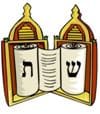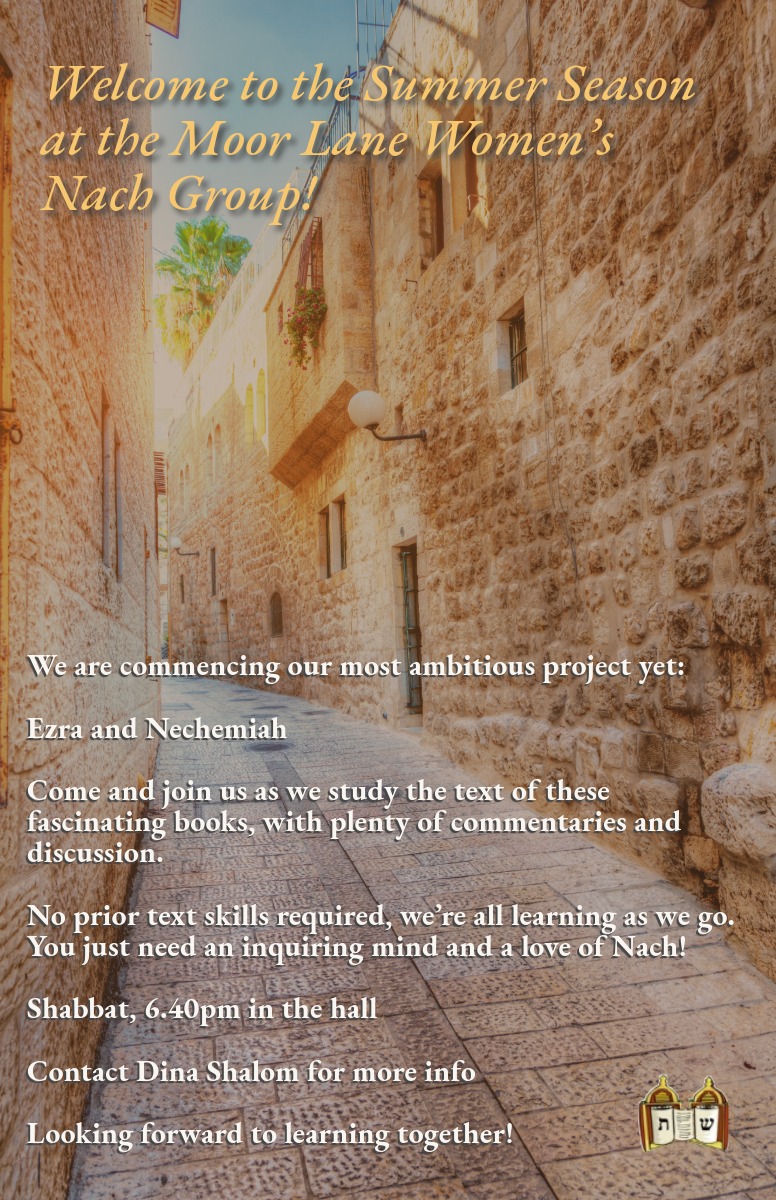
ק׳ ק׳ שׁערי תפילה

******
Times for Taanit
Shiva Asar BeTamuz
see below
*****
לוח זמני תפלה לקיץ תשפ״ד
Summer Timetable 5784 – 2024
מוצאי שבת | ערבית )מוצ”ש( | שקיעה | סוף זמן קראת שמע | זמן שבת | פלג מנחה (תה״ד) | פלג מנחה (לבוש) | מנחה וקבלת שבת | תאריך | שבת פרשת |
Shabbat Ends | Arbit | Sunset | Shema to be read before | Candles to be |
| Earliest Candle lighting | Minha & Kabbalat Shabbat* | Date | Parasha |
PM | PM | PM | AM | PM | PM | PM | PM |
|
|
10:32 | 10:28 | 9:22 | 9:10 | 9:09 | 8:23 | 7:43 | 7:30 | 19/20 July | בלק |
For those not in the Bet Hakeneset, but wishing to bring in Shabbat with the Kahal, candles should be lit about 30 minutes after the time listed for Minha and Kabbalat Shabbat, unless the time listed in the ‘latest candle lighting’ column is earlier, when candles MUST be lit by that time, in all cases
שבת
קרבנות
9:00 am
הודו
9:15 am

מנחה
6:30 pm
*******
6:40 pm

*****

Taanit – Fast
Shiva Asar BeTammuz
Tuesday 23rd July
Fast begins 1:50 am
Shacharit 6:50 am
Mincha 8:50 pm
Shekia 9:18 pm
End of the fast 10:16 pm
****
Balak, King of Moav, is in morbid fear of the Bnei Yisrael. He summons a renowned sorcerer named Bilaam to curse them. First, G-d speaks to Bilaam and forbids him to go. But, because Bilaam is so insistent, G-d appears to him a second time and permits him to go. While en route, a malach (emissary from G-d) blocks Bilaam's donkey's path. Unable to contain his frustration, Bilaam strikes the donkey each time it stops or tries to detour. Miraculously, the donkey speaks, asking Bilaam why he is hitting her. The malach instructs Bilaam regarding what he is permitted to say and what he is forbidden to say about the Jewish People. When Bilaam arrives, King Balak makes elaborate preparations, hoping that Bilaam will succeed in the curse. Three times Bilaam attempts to curse, and three times blessings are issued instead. Balak, seeing that Bilaam has failed, sends him home in disgrace. The Bnei Yisrael begin sinning with the Moabite women and worshipping the Moabite idols, and they are punished with a plague. One of the Jewish leaders brazenly brings a Midianite princess into his tent, in full view of Moshe and the people. Pinchas, a grandson of Aharon, grabs a spear and kills both evildoers. This act brings an end to the plague — but not before 24,000 people diedThe laws of the Parah Adumah, the Red Heifer, are detailed. These laws are for the ritual purification of one who comes into contact with death. After nearly 40 years in the desert, Miriam dies and is buried at Kadesh. The people complain about the loss of their water supply that until now has been provided miraculously in the merit of Miriam's righteousness. Aharon and Moshe pray for the people's welfare. Hashem commands them to gather the nation at Merivah and speak to a designated rock so that water will flow forth. Distressed by the people's lack of faith, Moshe hits the rock instead of speaking to it. He thus fails to produce the intended public demonstration of Hashem's mastery over the world, which would have resulted had the rock produced water merely at Moshe's word. Therefore, Hashem tells Moshe and Aharon that they will not bring the people into the Land. The Jewish People resume their travels, but because the King of Edom, a descendant of Esav, denies them passage through his country, they do not travel the most direct route to Eretz Yisrael. When they reach Mount Hor, Aharon dies and his son Elazar is invested with his priestly garments and responsibilities. Aharon was beloved by all, and the entire nation mourns him for 30 days. Sichon, the Amorite, attacks Bnei Yisrael when they ask to pass through his land. As a result, Bnei Yisrael conquer the lands that Sichon had previously seized from the Amonites on the east bank of the Jordan River.
Ohr Somayach Institutions www.ohr.edu

טורטייה
שאלה: מה מברכים על טורטייה?
תשובה: “טורטייה”, היא כמו פת לחם דקה מאד, ויש שעושים אותה מקמח חיטה, עם שמן או מיץ פירות, וטעם השמן או המיץ מורגש היטב כשאוכלים אותה, ובמקרה כזה אין לנו ספק, שברכתה הנכונה היא “בורא מיני מזונות”, כפי שאנו מברכים על כל העוגות.
אולם רוב סוגי הטורטייה המצויים בזמנינו, עשויים מקמח חיטה, כמעט ללא שמן או טעם מיץ פירות.
והנה לגבי מיני מאפה, שעשויים מבלילה (בצק) רכה, כמו שעושים בזמנינו “בלינצ'ס”, או “פנקייק”, מבואר בשלחן ערוך (סימן קסח), שברכתם בורא מיני מזונות. מפני שמעולם לא היתה עליהם תורת לחם. ודוגמא לזה מובאת בגמרא במסכת ברכות (לח.): אמר אביי, “טריתא”, פטורה מן החלה. ואם היא פטורה מן החלה (ממצוות הפרשת חלה), גם ברכתה תהיה “בורא מיני מזונות”, וכמו שפסק מרן השלחן ערוך בזו הלשון: “טריתא, דהיינו שלוקחים קמח ומים ומערבים אותם ושופכים על הכירה, והוא מתפשט ונאפה, אין עליו תורת לחם כלל, ואין מברכים עליו אלא “בורא מיני מזונות” וברכה אחת מעין שלוש”. כלומר, ברכה אחרונה “על המחיה”.
אבל הטורטייה שבזמנינו, נעשית מבלילה עבה, כפי שבירר את הענין הזה בספר ילקוט יוסף (סימן קסח סעיף יג), שאמרו לו אנשים שעוסקים בייצור טורטייה, שהיא עשויה מבלילה עבה, כלומר, בצק ממש, ומרדדים אותו דק דק, עד שנעשה “טורטייה”. ולפיכך, ברכתה של הטורטייה הזו, היא כברכת כל לחם דק שאנו אוכלים, כמו “לאפה – אשתנור” וכדומה, שברכתו המוציא לחם מן הארץ.
ואף על פי שיש שדנים לומר, שעצם הדבר שהיא דקה מאד, מוציא אותה מתורת לחם, מכל מקום להלכה איו חילוק בעובי הפת, שכל שהיא פת ממש, שנעשתה מבצק עבה ונאפתה, ברכתה המוציא לחם מן הארץ.
וטורטייה שהיא עשויה מקמח תירס, או מקמח עדשים או מקמח חומוס, ברכתה “שהכל נהיה בדברו”.
לכן יש לשים לב, כאשר ב”בופה – בר” שיש בקבלת פנים באולמות שמחה, מוגשים שם מיני מאכלים עם “טורטייה”, יש ליטול ידיים לפני אכילתם, ולברך “המוציא לחם מן הארץ”.
Tortillas and Wraps
Question: What is the proper blessing on a tortilla or wrap?
Answer: Tortillas and warps are form of very thin bread. Some are made from wheat with copious amounts of oil or fruit juice mixed in and are whose taste is easily discernable. In such a case, there is no question that the blessing would be “Boreh Minei Mezonot,” as is the case regarding any cakes or cookies.
Nevertheless, most tortillas and wraps manufactured nowadays are made of wheat using little or no oil or fruit juice.
Regarding baked goods made from a soft (viscous) batter, such as blintzes and pancakes, the Shulchan Aruch (Chapter 168) rules that they require a Mezonot blessing, for they do not retain the form of bread. An example of this can be found in the Gemara (Berachot 38b): “Abaye said, Tarita is exempt from taking Challah.” Anything that does not need Challah to be taken likewise requires the Mezonot blessing, as Maran rules: “Tarita, i.e., flour and water mixed together into a batter and poured onto a stove where it spreads and bakes, does not retain the form of bread and therefore requires the Mezonot and ‘Al Ha’Michya’ blessings.”
However, tortillas and wraps are made from thick doughs which are later flattened on a press and baked on a hot plate (as described by the Yalkut Yosef, Chapter 168, Section 13 quoting professional tortilla makers) and the appropriate blessing on them would be Hamotzi, similar to any other thin bread one would eat, such as a laffa and the like.
Although there are those who claim that the fact it is so thin removes it from having a bread form, halachically speaking, there is no distinction between different thicknesses of bread and as long as it is made from thick dough and then baked into bread, the correct blessing is “Hamotzi Lechem Min Ha’aretz.”
Tortillas and wraps made from corn, almond, lentil, or chickpea flour require the Shehakol blessing. Those made from rice flour require the Mezonot and “Boreh Nefashot” blessings.
Thus, when attending the buffet prior to the Chuppah at a wedding and wraps are served, in general, one will have to wash “Netilat Yadayim” and recite the Hamotzi blessing.